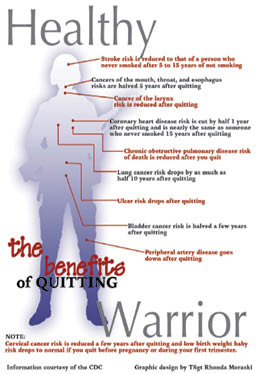The review was led by UEA, and involved researchers from the University of Oxford and the University of Stirling
Evidence published in the Cochrane Library provides strong evidence that financial incentives helped people to stop smoking, and stay stopped long term.
The review—led by University of East Anglia and involving researchers from the University of Oxford and University of Stirling—also found that incentives helped pregnant women stop smoking.
Smoking is a leading cause of disease and death worldwide, said Dr Caitlin Notley, from UEA’s Norwich Medical School.
“Most smokers want to quit, but stopping smoking can be really challenging. Quitting smoking can greatly improve peoples’ health. Rewards, such as money or vouchers, have been used to encourage smokers to quit, and to reward them if they stay stopped. Such schemes have been used in workplaces, in clinics and hospitals, and within community programmes.
“We wanted to know whether these schemes actually work long term, as previously it was thought that perhaps incentives only worked for the time that they were given. We found that they do help people stay smoke free, even after the incentive scheme ends.
Smoking costs the British economy nearly £13 billion, including over £3 billion for health insurance cover and social care and £7.5 billion to lost productivity.
The total financial amount of incentives varied considerably between trials, from zero (self-deposits), to a range of between £35 ($45 USD) and £912 ($1185).
The team investigated whether rewards such as cash payments, vouchers, or the return of money deposited by those taking part, worked.
All of the trials in the general population followed participants for at least six months and those who quit were checked by testing their breath or bodily fluids.
The researchers say that the certainty of their findings in the general population is high. Their certainty about the findings in pregnant women is moderate, as there weren’t as many studies and some were lower quality.
Dr Notley said: “We found that six months or more after the beginning of the trials, people receiving rewards were approximately 50 per cent more likely to have stopped smoking than those in the control groups.
“In people not receiving incentives, approximately seven per cent had successfully quit for six months or longer, compared to approximately 10.5 per cent of those receiving incentives.
“This is an important increase when we consider the enormous harms of smoking, and benefits of quitting, and suggests that incentives can be a useful part of a comprehensive approach to help people quit smoking. Another really important thing is that success rates continued beyond when the incentives had ended.”
Courtesy: Cochrane Library




